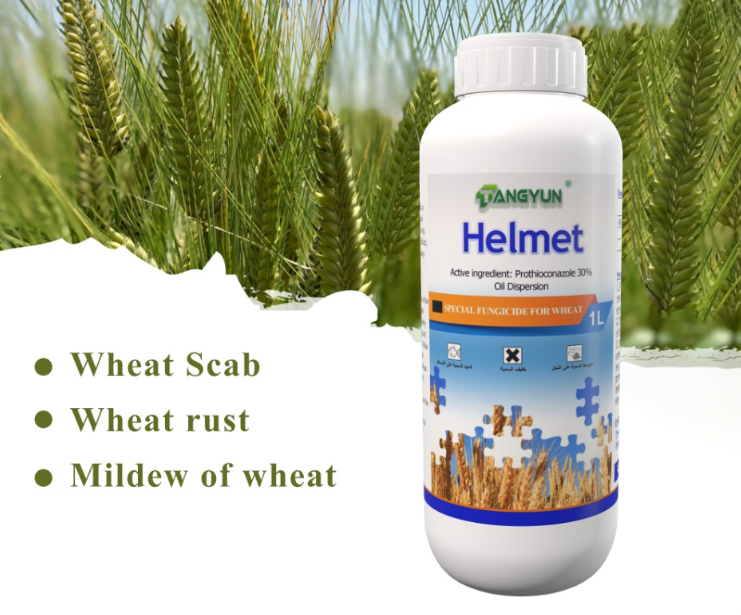Prothioconazole is a systemic fungicide commonly used in agriculture to control various fungal diseases.
It belongs to the chemical class of triazoles and is active in preventing and controlling diseases such as
powdery mildew, stripe rust, and septoria leaf blotch. Prothioconazole is used on a variety of crops,
including wheat, barley, maize, rice, potatoes, grapes, and tomatoes.
Mode of Action :
Prothioconazole works by inhibiting the biosynthesis of ergosterol, a vital component of fungal cell membranes.
Without ergosterol, the fungal cell membrane becomes disrupted, leading to cell death. Prothioconazole also inhibits
the production of essential sterols, leading to fungal growth inhibition.
Benefits of Prothioconazole :
The use of prothioconazole as a fungicide has many benefits. It is a broad-spectrum fungicide that can control multiple fungal diseases,
making it a versatile tool for agriculturists. Additionally, prothioconazole has low toxicity to humans and animals, making it safe to use
when applied correctly. The fungicide is also known for its curative, protective, and systemic modes of action, providing long-lasting control of
fungal diseases. Concerns Despite its benefits, the use of prothioconazole as a fungicide has raised concerns.
The persistent use of prothioconazole can lead to the development of fungicide-resistant strains of fungi. Additionally,
prothioconazole may have harmful effects on non-target organisms, such as bees, aquatic invertebrates, and earthworms.
Therefore,it is essential to use prothioconazole judiciously, following the recommended dose rates and time intervals.
In Conclusion
Prothioconazole is a valuable fungicide that has helped to manage fungal diseases in agriculture for years. Its effectiveness, low toxicity,
and systemic properties make it a vital tool for agriculturists. However, to enjoy the benefits provided by this fungicide,
it is essential to use it judiciously and take precautions to reduce the risks of the development of fungicide-resistant strains of fungi and accidental harm to non-target organisms.
Main compound formulations :
Prothioconazole 175g/L+Trifloxystrobin 150g/L SC
Prothioconazole 200g/L+Tebuconazole 200g/L SC
Prothioconazole 120g/L+Azoxystrobin 280g/L SC
Post time: Apr-03-2023




